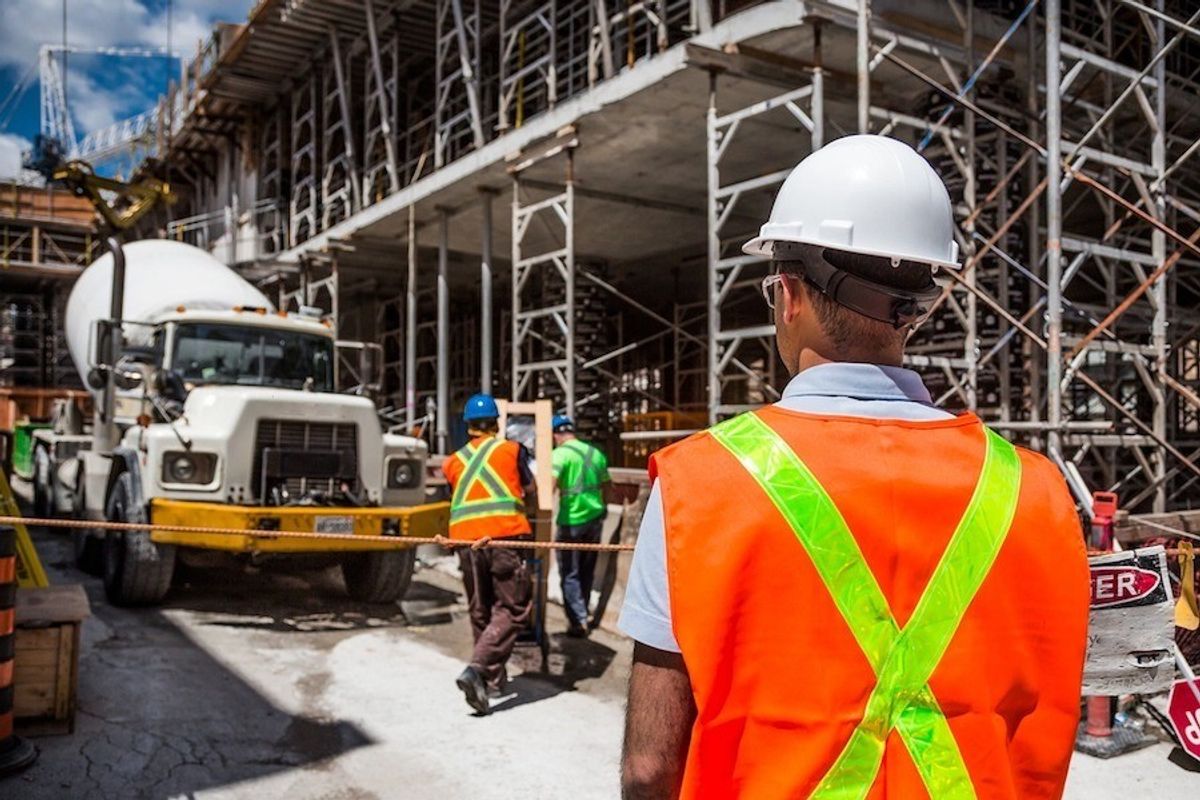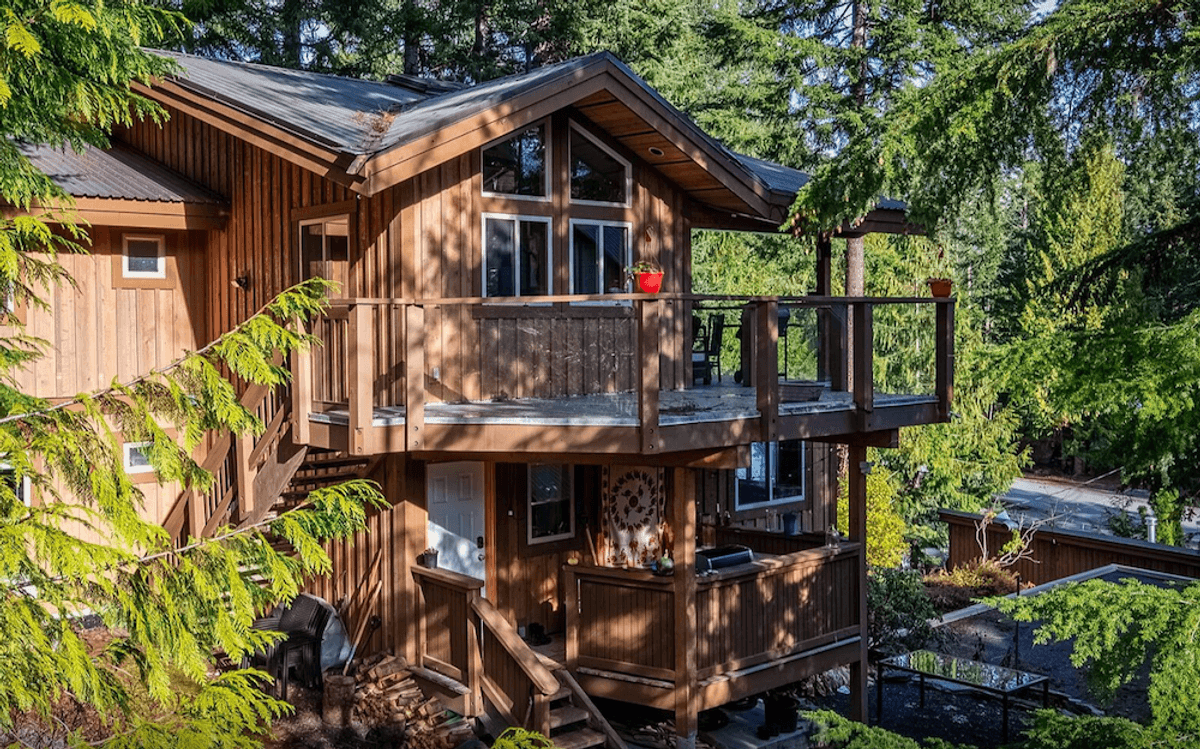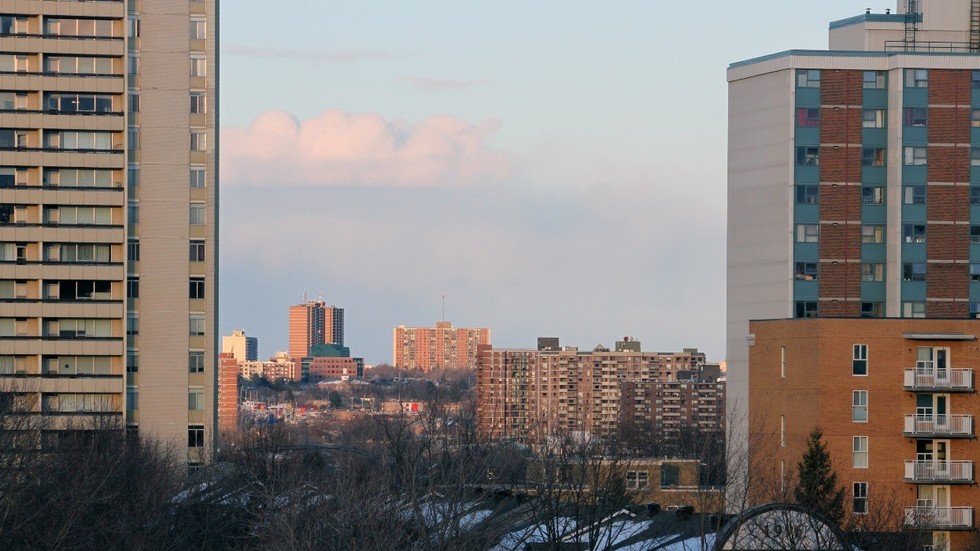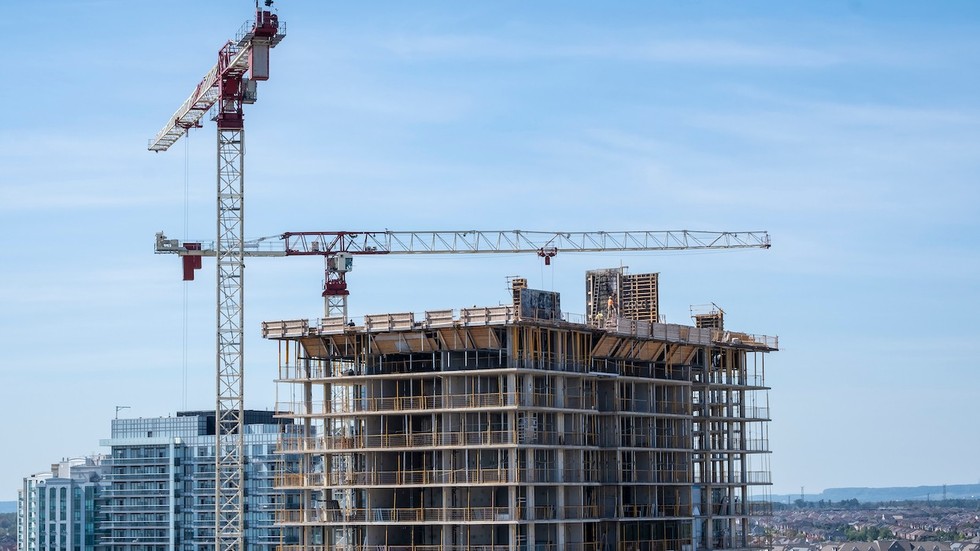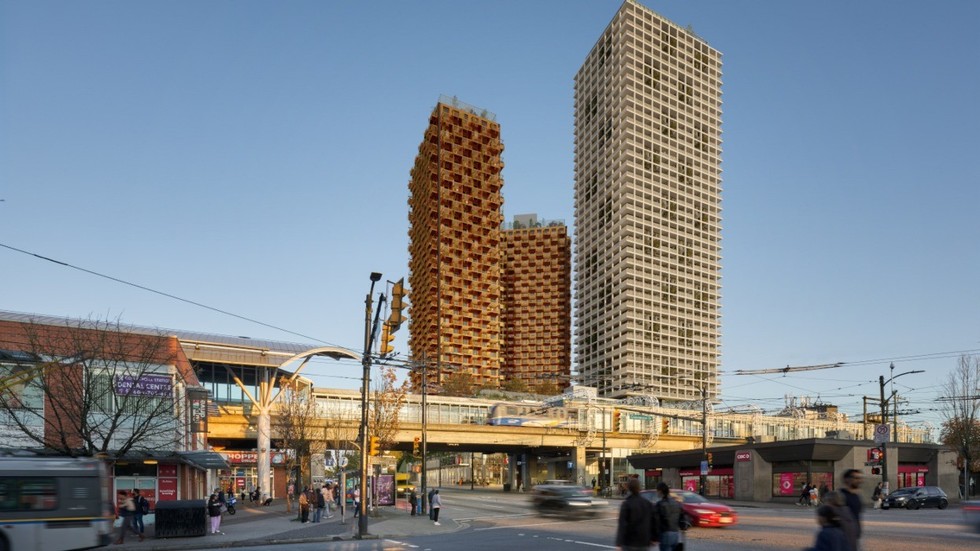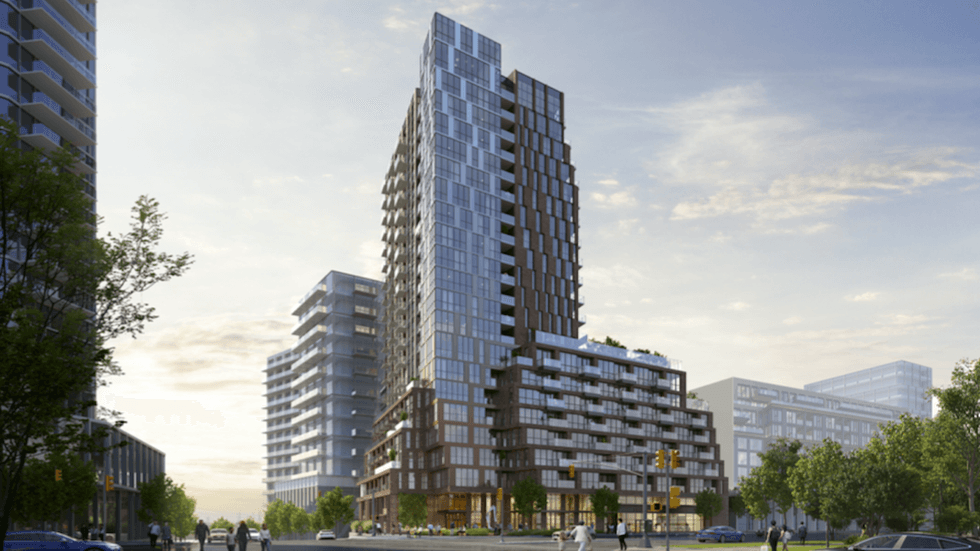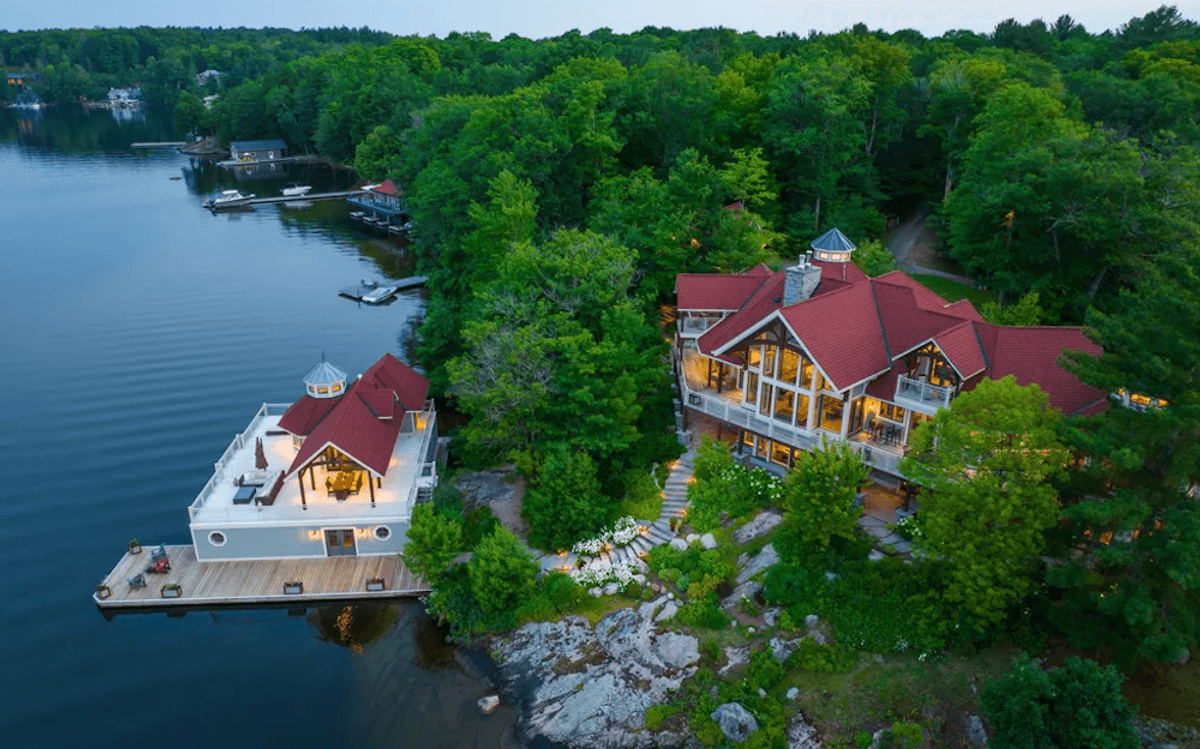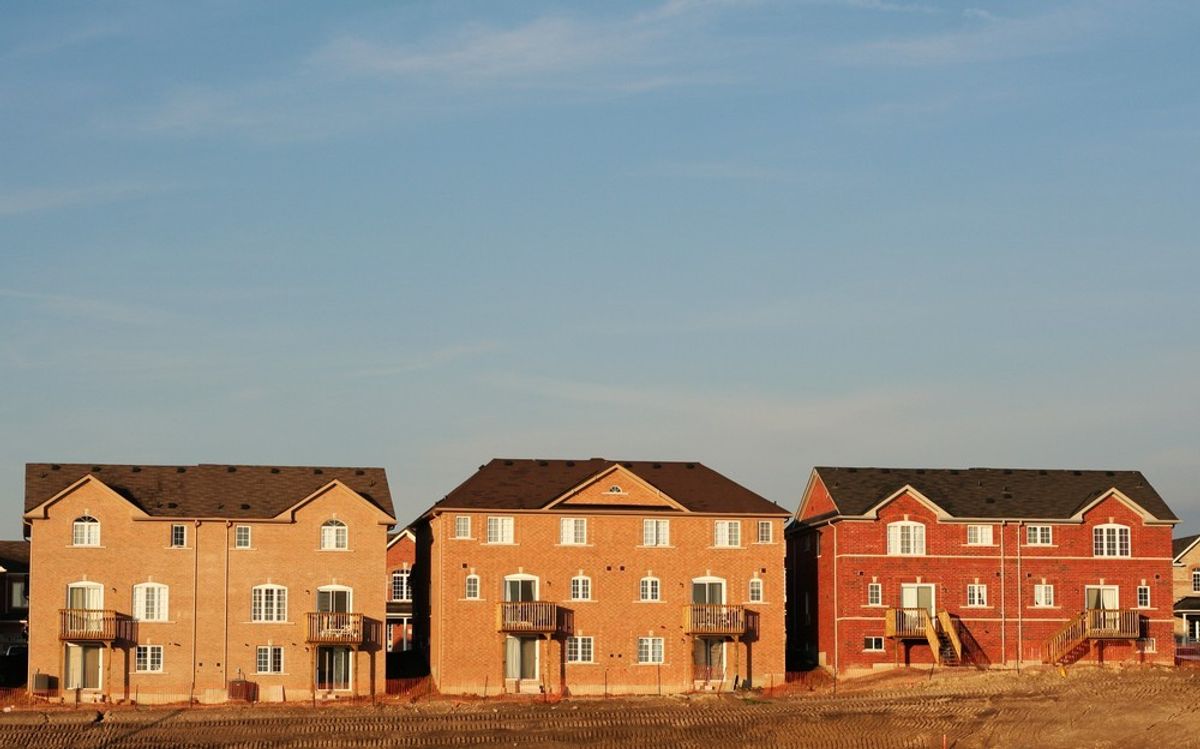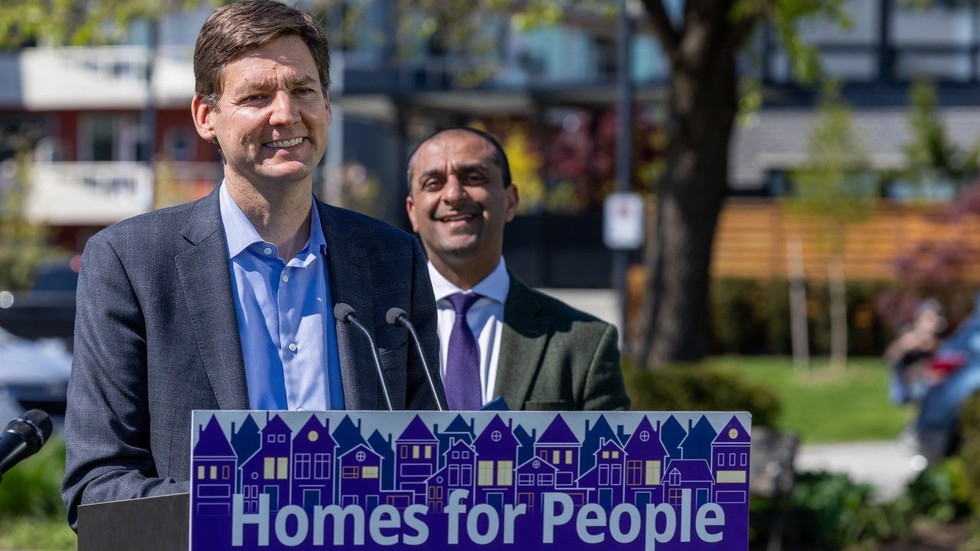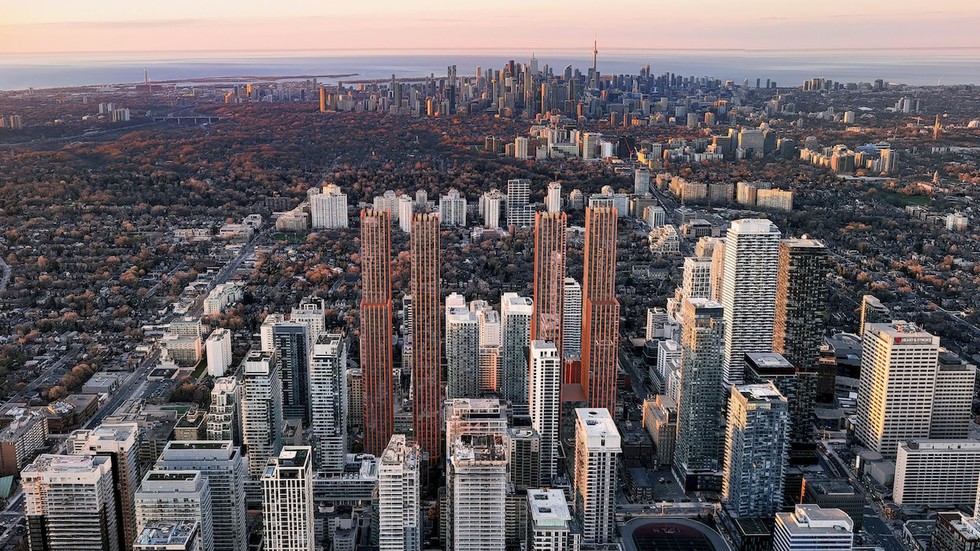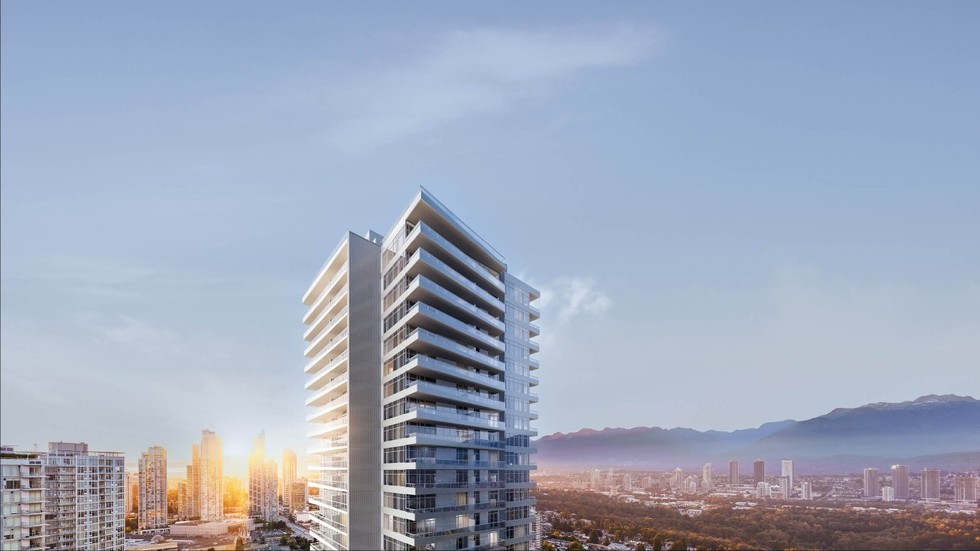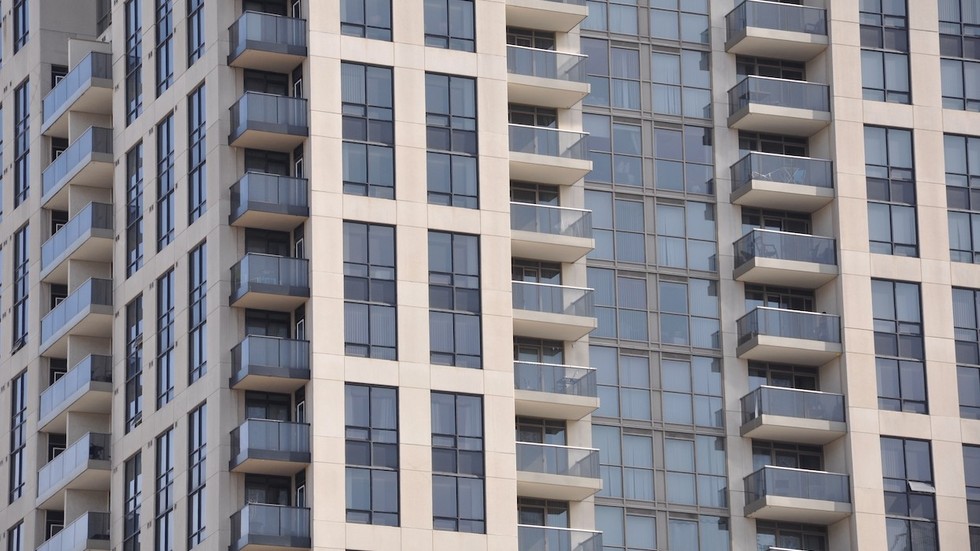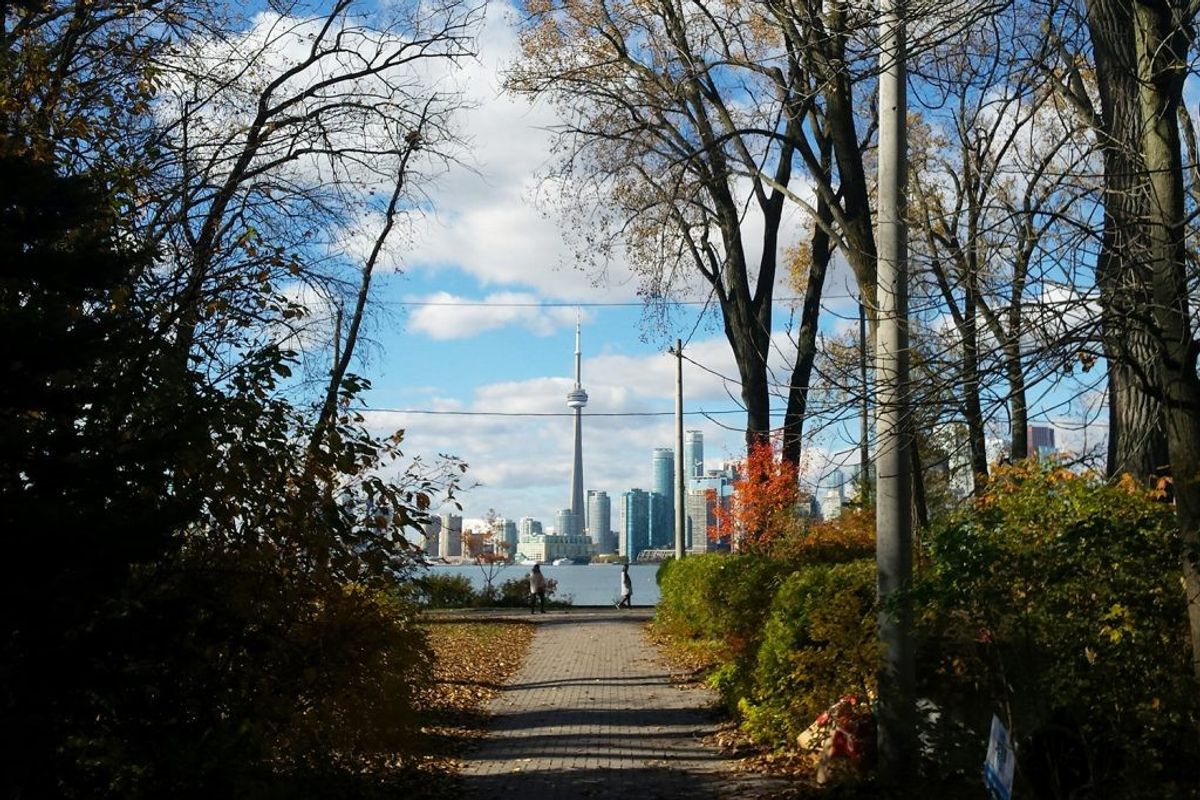Just a year ago, Toronto’s sky-high rental prices were making headlines and increasingly stretching paycheques thin. Now, it’s safe to say – much to the relief of many prospective renters – that the rental market has taken a nosedive, with substantial drops in prices.
Of course, this is all the result of a pandemic that has closed borders to immigration, created a surge of people moving to the suburbs, and instilled a newfound work-from-home culture that removes an office in the downtown core from the equation.
According to a recent report by Toronto real estate analyst and commentator Ben Myers, rent prices are down almost 20 per cent year-after-year compared to 2019 in many downtown Toronto areas. Anyone who’s searched for a rental as of late can attest that this is indeed the case – and, appropriately, there’s no shortage of condo supply throughout the city.
READ: Landlords Get Creative to Stay Competitive in COVID’s Softening Rental Market
It may be natural to wonder, then, whether the cost of residential land for Toronto's shiny new condo developments will move in the same downward direction – but it hasn’t yet. And it likely won’t any time soon, if at all.
“I fundamentally believe the rent drop is a short-term phenomenon brought on by COVID, and with land development being a long game – with many projects taking five to 10 years from land acquisition to occupancy/registration – developers are thinking long term,” says Myers. “My understanding is that developers have been asking for discounts on land, but many of the vendors are obviously reluctant to do so, as they are thinking long term as well.”

Matthew Boukall, VP of Data Management, Data Operations at Altus Group also stresses the lengthy timeline characteristic of land development logistics, and says that land pricing tends to be the last thing that moves after home prices have decreased. “In many cases, while rents may be softening right now, and in the re-sale market, things are kind of flat on the condo end, but we aren’t seeing all residential prices really come down yet,” he says. “There’s also a lag factor, where land prices tend to be more stable and steady. So, we’re not surprised that land hasn’t adjusted immediately, because it’s too soon.”
READ: Does Toronto’s First Major Commercial Lease Signed During COVID Signal a Return to Downtown?
For some basic background on the developer front, Jeremiah Shamess, Vice President, Private Capital Investment Group at Colliers International, points to the fact that residential land developers follow both the pre-construction condo market as well as the current condo market extremely closely. “Both markets give context as to what the revenue number will be, in order for them to understand what the residual land value is they can pay,” says Shamess. “In other words, they’re thinking, ‘If I can sell a condo for $1000 per square-foot, and it’s going to cost me $600 per square-foot to build, for example, and I need to pay tax and other things to make my profit – say that’s $150 per square-foot’.”
It also should be considered that developers purchase land that is either zoned or unzoned, with the latter seen as more of a risk. “Unzoned land requires a look into the future for at least five years, but they underwrite the site at today’s values to at least understand if the numbers work out today,” says Shamess. “In the worst case scenario – if rent prices stay flat for the next five years, which is usually unlikely – then at least they can make the project work.”
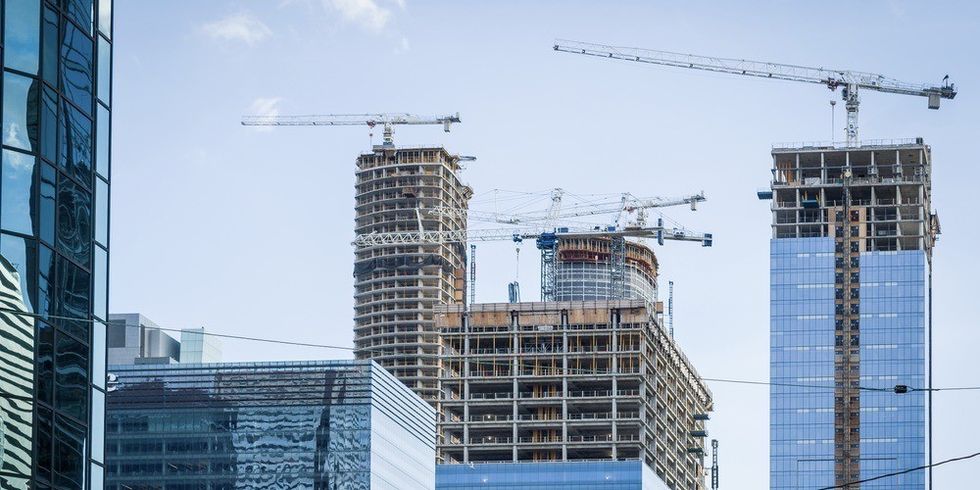
We can’t forget about the role of the real estate investor, either. “With most of the pre-construction condos in high-density downtown areas, the majority of the purchasers are the ‘investor’ – and those investors will buy the unit and rent it out,” says Shamess. “So, most of them look toward the future, because when you buy a unit, it will take approximately three to five years to fully complete, depending on the developer.”
When many factors are considered, it’s widely assumed and predicted that the rental market will bounce back once Toronto life moves more in the direction of normal(ish). And that could happen before ground is broken on new condo sites.
“When you approach it from an optimistic perspective, the pandemic won’t last forever and eventually immigration, jobs, schools, and retail will all re-open and ultimately, Canada will still be a very desirable country that people want to live in,” says Nerses Sraidarian, Broker of Record and owner at Big City Realty. “A one-year rental decline might affect the growth potential of the development, but it won’t drastically impact the decision to buy.”
Sraidarian isn’t the only optimistic one.
“My personal take is that some of the reductions in rent are giving back some of the premium pricing we saw in the tight rental market pre-pandemic,” says Boukall. “But, at a certain point – and I think we’re getting close – the rents will come down to the point that they are attractive to a broader base of consumers and we’ll see some demand return. I expect that to happen next year.”
Reinforcing this prediction, Shamess points to the fact that condo prices have barely fluctuated in recent decades. “Over the past 25 years, condo prices have been fairly consistent – aside from a flurry in 2017, followed by a decrease in 2018 and the mortgage stress test,” said Shamess. “Prior to that, it’s been quite consistent since 1995, even through the financial crises. Now, most developers assume that if rents and condo prices are flat, there will still be a demand. Ultimately, developers are just service providers providing housing.”
While the price of land remains unchanged, purchasing decisions on the part of developers have adapted to reflect the current climate. Shamess highlights a new site at Bayview and Sheppard Avenues that recently experienced a relatively high 14 offers. “That’s not necessarily uncommon, but typically, you’d see at least three super aggressive pricing offers from developers – those saying they will buy the land based on where they predict condo prices will be in four years, based on a four per cent compounded increase of condo prices,” says Shamess.
Now, he says, developers aren’t taking such massive and aggressive leaps as to what they predict the pricing will be in the future. “They’re keeping things fairly flat, so the bids for the land are much closer together in terms of price differential,” says Shamess. “This is actually a good thing, because it means the market is more efficient and people aren’t taking these broad-based and aggressive stances on land, and the value of the land is being sold the way it should be today.”
READ: Graywood Acquires Lucrative Downtown Toronto Development Site
Each year, says Shamess, roughly $3-billion dollars of residential land sales will take place; roughly 350-450 transactions. “This year, we’ve seen a decrease in land sales to [the] two billion range, but [the] number of transactions is almost 90 percent of last year’s numbers, with a few more days to go in December, when deals will close,” he says. “Larger land sales aren’t happening as frequently, but there are still many deals in the $10-million dollar and below range that are still happening quite frequently, simply because they are lower risk.”
Furthermore, an unzoned piece of property means people will be more conservative, with likely fewer bidders on the property. “In a good market, you could see double the offers,” says Shamess. “A lot of developers are sitting on the sidelines, wondering whether the market will go up or down.”
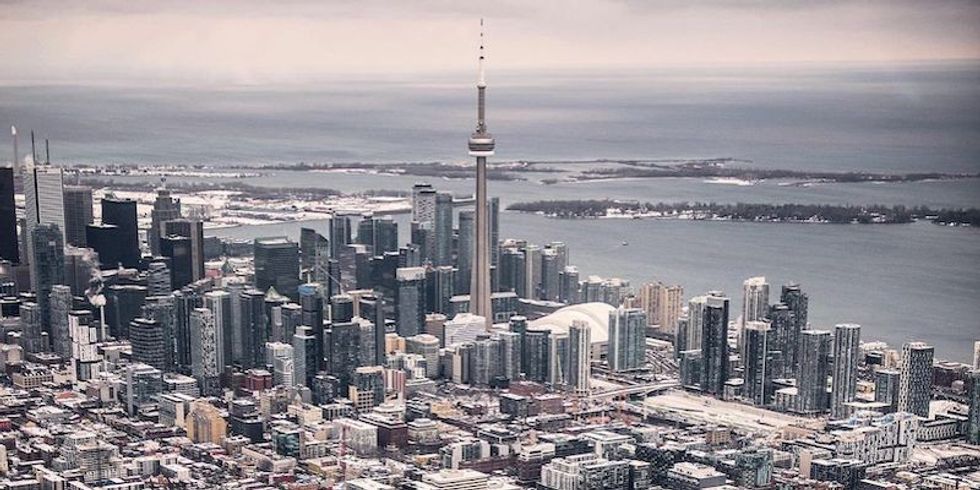
With the vaccine already here, says Myers, the fall of 2021 and spring of 2022 could see a big bounce back in Toronto's real estate sales activity and pricing. “Land pricing is fairly sticky, with many owners wanting to get top dollar, similar to what the last property sold for,” he explains. “Secondly, land sales activity and land price growth is highly correlated with new pre-construction condo sales and price growth, so it makes sense for land owners looking to sell to be patient. We have yet to see 'blood in the water' with power of sale or receiverships on land holdings resulting from COVID, which would bring down average land prices.”
In the meantime, Sraidarian suggests it would be fairer to compare land prices and value to residential prices and value instead of to rent prices. “If you look at year-over-year average home prices in Toronto from just last month (according to TRREB’s MLS Market Watch November 2020 Report), we’re still seeing double digit increases especially in ground-oriented detached homes,” he says. “The demand for home ownership is still very high particularly incentivized by the low interest rates.”
Sraidarian also reinforces the difference in demographics between renters, and individuals or corporations who have the financial capability to purchase land. “Renters are typically students, new immigrants, people who have recently moved out, or those starting their careers – all of which the current market lacks due to the pandemic,” he says. “In most cases, home ownership is still the goal while renting.”
The significant rent price drop, then, is reflective of how the pandemic has largely stopped the renting demographic that supported these prices – immigrants, students, new hires, says Sraidarian. “On the other hand, land prices (and also residential prices) continue to be evaluated on a long-term basis, which predicts our population growth will resume post-pandemic."

